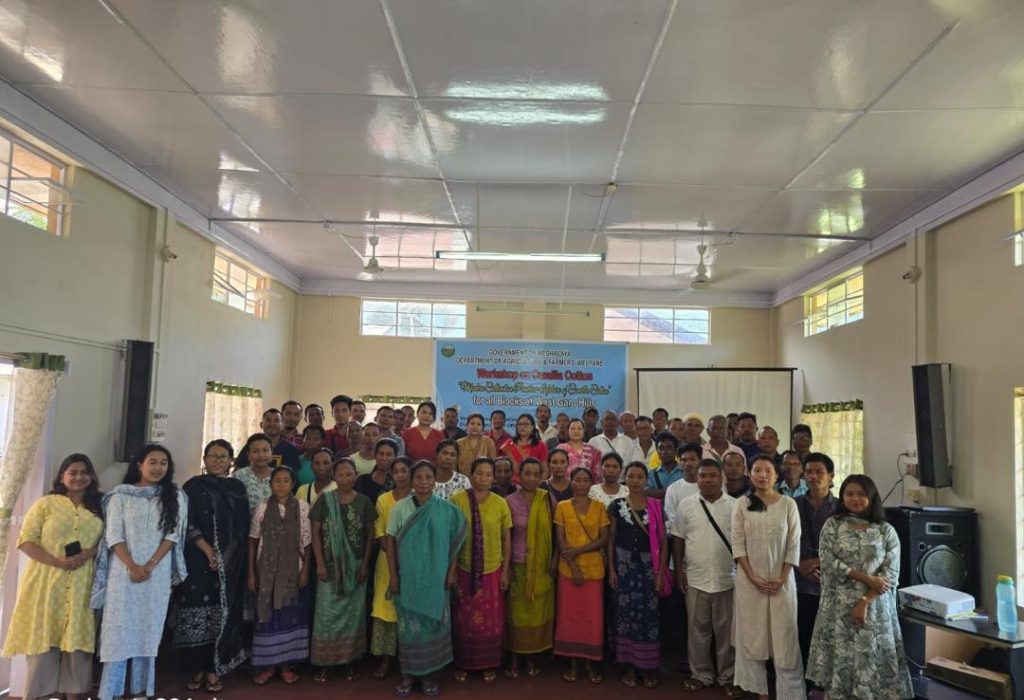
Title: Tura Hosts Workshop to Revive Comilla Cotton Farming in Meghalaya
Comilla cotton, a traditional crop in the region, has been a significant part of Meghalaya’s agricultural heritage for centuries. However, in recent years, the crop has been facing a decline in production and popularity, leading to concerns about its future. To revive this traditional crop, a workshop was recently held in Tura, West Garo Hills, to introduce modern cultivation techniques and highlight its economic potential. The event, organized by the District Agriculture Office under the State’s cotton revival scheme, saw over 60 farmers attending, eager to learn about the latest methods and strategies for growing Comilla cotton.
The workshop aimed to revitalize Comilla cotton farming in the region by providing farmers with practical knowledge and skills to adopt scientific farming practices, effective pest control methods, and marketing strategies to increase their income. The event was a significant step towards promoting sustainable agriculture and rural livelihoods in Meghalaya.
During the workshop, officials from the District Agriculture Office emphasized the importance of Comilla cotton in preserving the region’s cultural heritage and its potential to generate income for farmers. They highlighted the key role that this crop plays in promoting rural development and alleviating poverty. The officials also stressed the need for sustainable farming practices, citing the challenges posed by climate change, soil degradation, and pest infestations.
The workshop provided farmers with hands-on training and demonstrations on modern farming techniques, including soil conservation, irrigation management, and crop diversification. The participants also learned about the use of organic fertilizers, integrated pest management, and disease management. The training sessions were designed to equip farmers with the skills and knowledge required to adopt these techniques and improve their crop yields and quality.
In addition to the technical training, the workshop also focused on the market potential of Comilla cotton. Officials from the State’s agriculture department and marketing agencies provided information on the demand for high-quality cotton fabrics and yarns in the domestic and international markets. The participants learned about the various marketing channels available to them, including the online marketplaces, textile mills, and garment manufacturers.
The revival of Comilla cotton farming in Meghalaya is not only crucial for the region’s agricultural heritage but also has significant implications for the State’s economy. The crop has the potential to generate income for thousands of farmers, create employment opportunities, and contribute to the State’s GDP.
The workshop was a groundbreaking initiative that brought together farmers, agricultural experts, and officials from the State’s agriculture department to revitalize Comilla cotton farming in Meghalaya. The event demonstrated the State’s commitment to promoting sustainable agriculture and rural livelihoods, and its willingness to support farmers in adopting modern farming techniques and marketing strategies.
In conclusion, the workshop in Tura, West Garo Hills, was a significant step towards reviving Comilla cotton farming in Meghalaya. The event provided farmers with the knowledge, skills, and resources needed to adopt modern farming practices, improve their crop yields and quality, and market their products effectively. As the State continues to promote sustainable agriculture and rural livelihoods, the revival of Comilla cotton farming is likely to have a positive impact on the region’s agricultural heritage, economy, and rural development.






